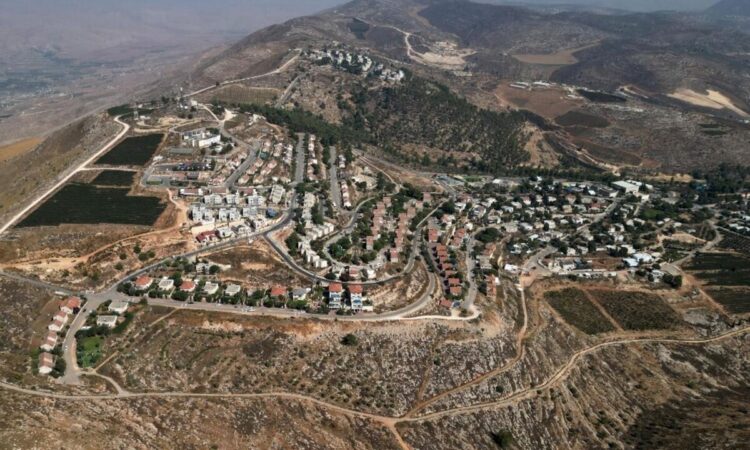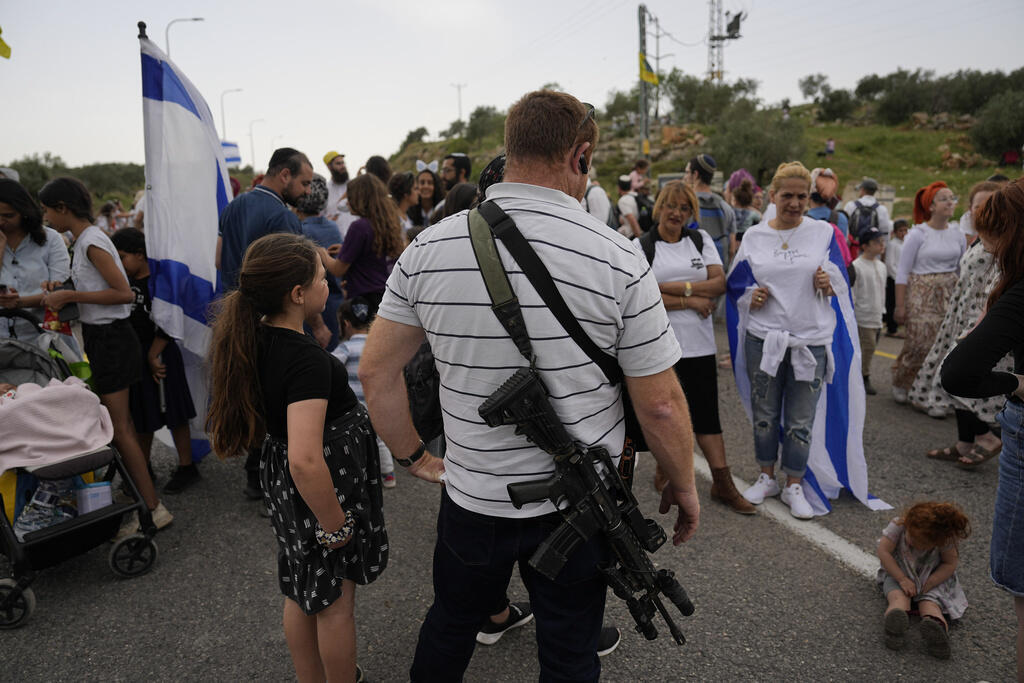
More than a week after the US issued a presidential order sanctioning Israeli settlers who commit violence against Palestinians, the European Union is still hesitating. While France and other EU heavyweights have pushed for sanctions, smaller members are refusing to agree.
On 1 February, citing “high levels of extremist settler violence, forced displacement of people and villages, and property destruction”, US President Joe Biden issued an executive order that blocks funds and imposes travel bans on people and organisations involved in settler violence.
Such violence, he argued, undermines the security of Israel and risks widening the conflict across the Middle East, threatening US personnel and interests.
The move drew mixed reactions.
“It is a good step by Biden, but I think it should not mislead us,” Shawan Jabarin, director of West Bank human rights organisation Al Haq, told RFI.
“Because settlements are the root cause of the problem, it is not just an extremist here or there, or individuals. The question is: who is behind it and why, and the crime is the transferring of Israelis to Palestine territory and building the settlements. That’s a war crime,” he argues.
Shawan Jabarin, director of Palestinian human rights organisation Al Haq
“The question is: who is behind it and why, and the crime is the transferring of Israelis to Palestine territory and building the settlements. That’s a war crime.”
REACTION by Shawan Jabarin, Director of human rights organisation Al Haq, West Bank
But settlers are angry. “I am very disappointed,” says Yisrael Medad, who lives in the Shiloh settlement on the West Bank, 45 km north of Jerusalem.
“The whole issue of so-called settler violence has been completely blown out of proportion, has become a whip in order to blacken the name of 500,000 Jews living in Judea and Samaria [the occupied West Bank],” he told RFI.
“The numbers are all off.”
“The whole issue of so-called settler violence had been completely blown out of proportion, has become a whip in order to blacken the name of 500,000 Jews living in Judea and Samaria. The numbers are all off.”
REACTION by settler activist Yisrael Medad, Shiloh settlement, West Bank
European position
Meanwhile, the European Union has not made up its mind about possible sanctions against the settlers.
The EU’s official stance on Israeli settlements is that “all settlements in the occupied Palestinian territory are illegal under international law and the EU will not recognise any changes to the pre-1967 borders, including in Jerusalem, other than those agreed by both sides”.
Occasionally, Brussels pointedly reiterates this position in protest – for instance in May 2021, when Israel announced their intention to construct 540 new housing units in East Jerusalem, a project that would lead to evictions of Palestinians and interrupt roads between Jerusalem and the West Bank.
But the EU has never taken any concrete action, then or now.
Instead, Brussels seems to be waiting to see what the effects of Washington’s steps may be.
Brussels drags its feet
In the days after the 7 October attacks by Hamas – which cost the lives of some 1,200 Israelis – both the EU and member states were quick to slam the Palestinian group.
There was also criticism of the Israeli onslaught that followed, killing more than 27,000 Palestinians and displacing hundreds of thousands. But sanctions did not follow.
Settler violence in the West Bank that erupted after the October attacks was only addressed two months later. The US State Department first imposed visa restrictions on 5 December, targeting individuals “believed to have been involved in undermining peace, security, or stability in the West Bank”.
The EU followed up on 11 December, when the bloc’s foreign policy chief, Josep Borrell, said that he would propose sanctions against “Jewish settlers responsible for violence against Palestinians in the Israeli-occupied West Bank”.
He added, however, that EU foreign ministers had “not yet shown the unanimous support that would be necessary to pass such a measure”.
EU split
Four days later, selected EU countries, together with the UK, Switzerland, Canada and Australia, issued a joint statement on settler violence on the West Bank, expressing their “grave concern about the record number of attacks by extremist settlers against Palestinians”.
They noted that since Hamas’s terror attacks, settlers have committed “more than 287 violent attacks, killing eight Palestinian civilians, injuring more than 73, and forcing more than 1,149 Palestinians from their homes”.

But the statement revealed a split within the EU, as it singled out nine of the 27 EU member states – Belgium, Denmark, Finland, France, Ireland, Luxembourg, the Netherlands, Spain and Sweden – as principal co-signees.
A majority of EU member states, including the Baltic States, Poland, Hungary, the Czech Republic and others, were not mentioned.
On 19 December, then French Foreign Minister Catherine Colonna said that Paris had “decided to take measures … against certain extremist Israeli settlers”.
“I was able to see for myself the violence committed by certain of these extremist settlers. It’s unacceptable,” she said.
But to date, no concrete steps have been taken by the EU as a whole.
According to Politico, German Chancellor Olaf Scholz warned Israeli Prime Minister Benjamin Netanyahu in a phone call last week that the situation of Palestinians in Gaza was “very worrying” and better access to humanitarian aid was urgently needed.
But Hungary and the Czech Republic are not convinced. According to reports, the two Central European countries have consistently blocked any proposed EU sanctions against Israel, which the bloc’s diplomats discussed as recently as last week.

“The EU has no external and foreign policy regarding Palestine,” says Jabarin.
“We have been asking the EU to take action against the settlements and against the settlers. Part of that is to ban products of the settlements entering the EU market. We have been saying this for decades. And they didn’t listen.
“All the time they try to justify the common market, et cetera. But even individual countries, they can do it. But they didn’t do it,” he says.
But Medad, the settler, thinks the EU should not intervene at all.
“The European Union has nothing to do with us in Judea and Samaria, except being an interfering force,” he says, accusing the EU of funding Palestinian construction and “anti-Jewish activities”.
“They are acting as if the [1920-1948 British] Mandate still exists, except now it is a French or German or a Norwegian Mandate, and really they have nothing to do either making peace or providing security for all the people living in Judea and Samaria,” he claims.





